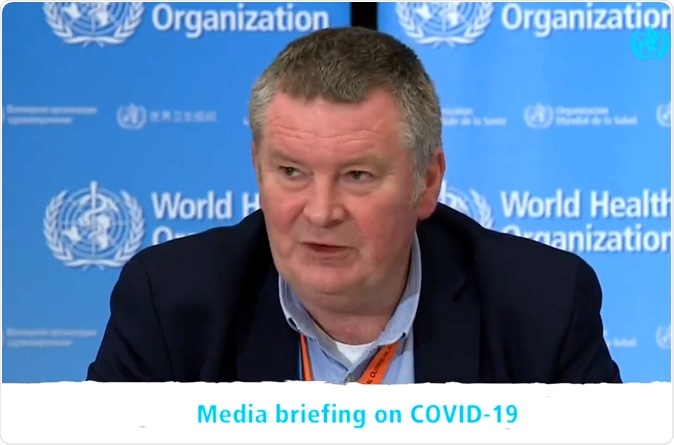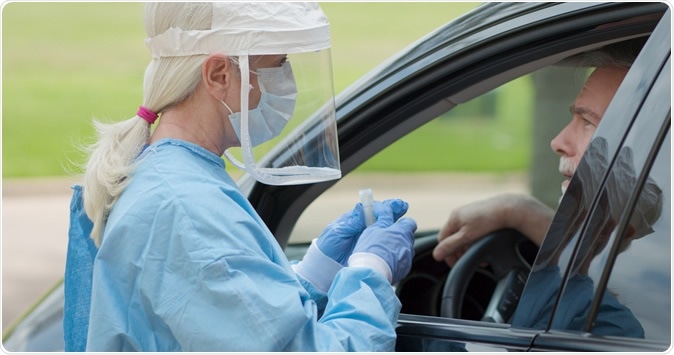With more than 336,000 confirmed cases and at least 14,600 deaths across the globe, many countries and regions have imposed lockdowns in their territories to stem the spread of the coronavirus. The World Health Organization (WHO), however, says it is not enough.
Government and health measures against the novel coronavirus, officially called the severe acute respiratory syndrome coronavirus 2 (SARS-CoV-2), must extend beyond large-scale lockdowns, a WHO emergency-preparedness expert said.
"What we really need to focus on is finding those who are sick, those who have the virus, and isolate them, find their contacts and isolate them," Dr. Michael Ryan, Chief Executive Director of the WHO Health Emergencies Programme, said in a statement.

Mike Ryan. @DrMikeRyan - Executive Director of WHO Health Emergencies Programme.
He added that though lockdowns will suppress the spread of the virus at the moment if there are no strong public health measures in place, once these are lifted, the threat of the disease will reemerge.
Mass testing is the key
The key to preventing the vast spread of the virus is to conduct large-scale testing of residents in an affected area. This way, the authorities can detect who is infected and isolate them. Further, once the transmission is suppressed, then efforts to get rid of the virus will follow.

Dressed in full protective gear a healthcare worker collects a sample from a man sitting inside his car as part of the operations of a coronavirus mobile testing unit. Image Credit: JHDT Productions / Shutterstock
In China, Singapore, and South Korea, health officials have imposed a combination of mass testing and restrictions to curb the rapid spread of the virus. They have shown improvements by reporting lesser cases and deaths in the past few weeks.
He added that though the vaccines will eventually arrive soon, it is crucial to act now to prevent further cases and deaths related to the coronavirus disease (COVID-19).

Novel Coronavirus SARS-CoV-2 Colorized scanning electron micrograph of an apoptotic cell (blue) infected with SARS-COV-2 virus particles (red), isolated from a patient sample. Image captured at the NIAID Integrated Research Facility (IRF) in Fort Detrick, Maryland. Credit: NIAID
South Korea has first been an epicenter of the novel coronavirus when a religious group first reported a cluster of cases in the country's Daegu region, first reported infections. From there, the virus has spread like wildfire across the region, so far infecting 8,897 people and killing 104 individuals.
The reported cases in South Korea has started to ebb, thanks to the country's strategy – trace, test, and treat. South Korea focused more on mass testing to see who is infected, tracing everyone who has been in contact with confirmed cases, imposing self-quarantines, and treating those who are sick.
Nearly 20,000 people are being tested daily for coronavirus in South Korea, which is more people per capita than any country in the world.
The testing centers are located in hospital parking areas, where laboratories have become the front line. The government placed 96 public and private laboratories for coronavirus testing. Drive-thru testing centers have been set up, so people can just drive to get tested. There is no contact as they just roll down their windows, and the healthcare worker gets swab samples.
Are lockdowns effective?
Lockdowns are effective since there is a limit in the movements of people in the affected region or country. Though community quarantines and lockdowns show promise in preventing the spread of the virus, the WHO says people should get tested.
When testing becomes rampant in an area, health authorities can quickly determine who is infected. They can prevent the virus from transmitting to other people through self-isolation measures.
In comparison, Italy has imposed lockdowns, but the worst-hit country in the world still sees a sharp increase in the number of infections. So far, the country has the highest death toll, with 5,476 deaths and 59,138 confirmed cases. The United States comes in second with 33,276 confirmed cases, while Spain, Germany, and Iran trail behind with 28,768, 24,873, and 21,638 cases, respectively.
Social distancing, proper hygiene, and avoiding crowds are still useful measures to prevent infection. Ryan also said that severe vaccines are currently being developed, with the U.S. starting the first trial. Though, he said it might take about a year before a vaccine becomes available.
During this time, it is crucial to maintain health measures, such as lockdowns in the most affected countries, to prevent further spread of the virus. The virus has taken a toll on the economies of many nations, loss of jobs for many workers, and loss of lives among front liners and health workers.